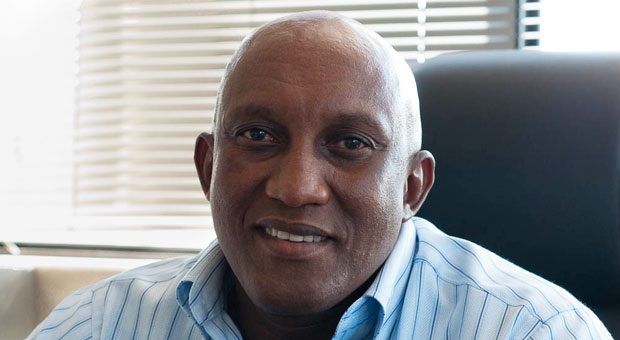
Telkom’s management team failed to follow internal tender procedures and is to blame for a court interdict on Friday that prevents it from continuing with work to improve its access network into homes and businesses.
This is the allegation levelled against the operator by networking equipment vendor ZTE Mzanzi, a joint venture between China’s ZTE and local black empowerment partners, which last week secured a high court order barring Telkom from continuing with work on a new access network with chosen partners Huawei and Alcatel-Lucent Technologies.
ZTE Mzanzi CEO Tumi Magasa claims Telkom disqualified his company unfairly from the tendering process. “The Telkom CEO [Nombulelo Moholi] says the company’s procedures are on trial. But there’s nothing wrong with its procedures,” says Magasa, reacting to a strong statement issued by Telkom following the high court ruling. “The problem is that the leadership of the day isn’t following the procedures.”
Magasa says approaching the high court was ZTE Mzanzi’s only recourse to ensure the correct dispute resolution procedures are followed before roll-out of the new network infrastructure begins in earnest.
The project is the biggest ever to be issued by Telkom, Magasa says. “For any potential service provider or original equipment manufacturer there will be nothing of this scale for the next 10 or 15 years.”
The project is worth an estimated R13bn over five years and involves installing street-level distribution cabinets called multi-service access nodes (MSANs) across the country that will offer much faster broadband to end users over both copper and fibre-optic lines.
“Telkom is updating 3 700 sites to MSANs,” Magasa says. “If we are to be left behind, at least let it be on fair grounds.”
Magasa claims ZTE Mzanzi has “been treated unfairly” and, although the company says it doesn’t to win every tender it bids for, it does want “fairness in proceedings”.
“The court was very clear that there has been a serious oversight on Telkom’s part,” he says. “We did everything possible to engage with Telkom. We wrote three letters to the company prior to this. We tried to keep this matter out of the courts and approached the company to ask why we weren’t being engaged. We were told we’d be informed when the time was right.”

According to Magasa, the only further communication ZTE Mzanzi received from Telkom was last November when it was told it had been disqualified. But he says all the documentation Telkom claims was missing from the company’s tender application was in fact included.
“We said if Telkom engaged with us and had a clarification session, as it did with other bidders, we could have shown it where the necessary documentation was in our submission. But we didn’t hear anything from the company.”
After ZTE Mzanzi received the notification of its disqualification, it replied and requested the opportunity to discuss the matter with Telkom. “The company said we had no status, that our bid didn’t warrant a response, and that we had no legal standing.”
But Magasa says this response wasn’t only inappropriate but was was in contravention of Telkom’s own procurement policies.
“We wrote again to say that the RFP [request for proposal] document made provision for dispute resolution. Section 43 deals with cases of disgruntled bidders and allows for conflict resolution arising from either the RFP or from a contract subsequent to it. We fall under the first part.”
Magasa says ZTE Mzanzi is entitled to engage with Telkom in terms of section 43 but the operator said that because there was no contract no review was necessary. “Effectively they closed the door on us, which was very unfair. To put together these tenders is a lot of work.”
Each time ZTE Mzanzi tenders for a project it brings out a technical team and product specialists from ZTE in China, a process that Magasa says incurs sizeable costs. “It’s bitter pill to swallow when disqualified unjustly.”
He says Telkom left the company with no choice but to seek relief from the high court. “[Telkom’s] defence in the court was always that we were not entitled to dispute the decision, and that’s what we asked the court to rule on. The court has made that ruling and has agreed that we are entitled to dispute resolution.”
Magasa says Telkom clearly didn’t consider the specifications or manuals submitted by his company because, during the court proceedings, ZTE Mzanzi was asked to resubmit these.
“Telkom didn’t know those documents were inside our original submission. Clearly the company didn’t look at our original submission.”
Magasa says it’s “puzzling” that Telkom said on Monday that its procedures were on trial. “We interpreted them as they are written, as did the court, but the leadership of Telkom is at fault. I’m surprised an issue like this could even get through the board.
“Telkom said external audit firms have looked at the process and it will be interesting to see those reports. What kind of audit board would make the recommendations it has? Both the CEO and the board have handled this poorly, assuming they had all the information at their disposal of course.”
Magasa says that to the best of his knowledge Telkom wanted to start the network upgrade in September 2011 but there were delays because of disagreements about which bidders should be included or excluded from the process. — TechCentral




